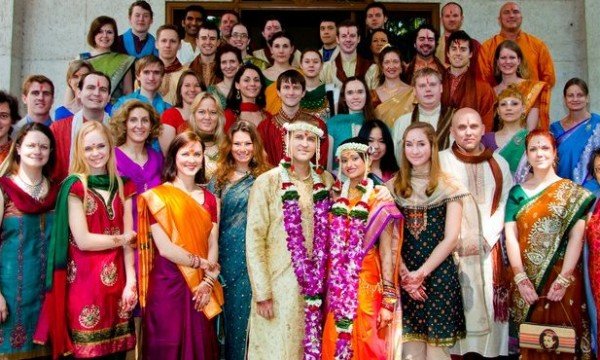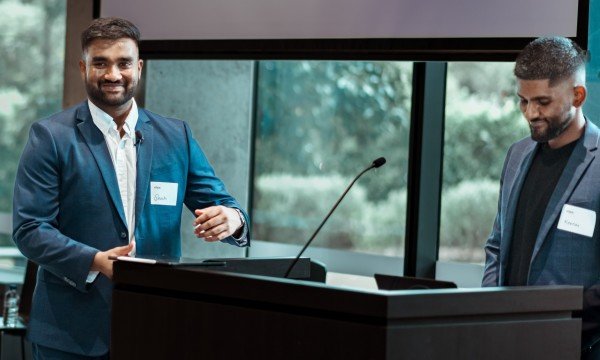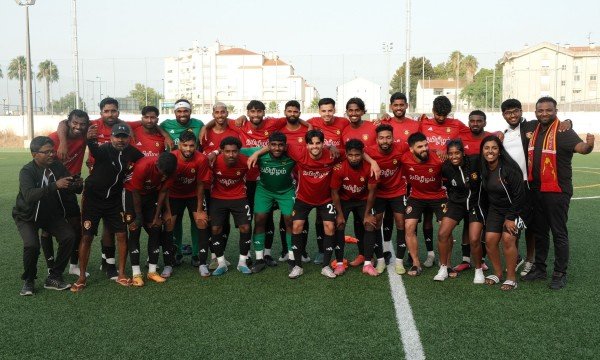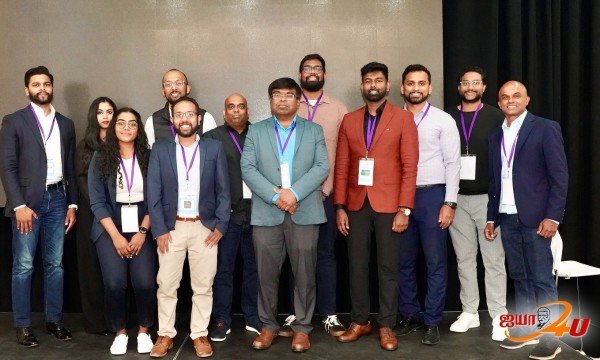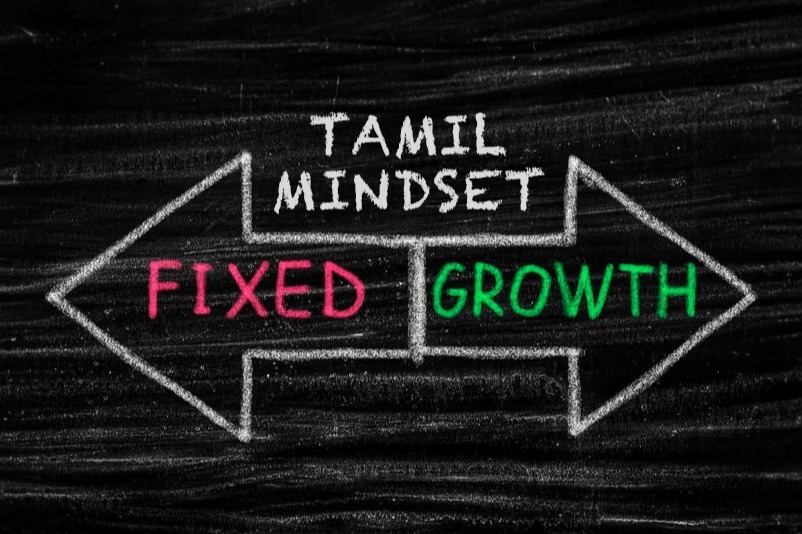
It has been suggested that a race, similar to empires, experiences various stages throughout its existence—infancy, strength, and decay. While this statement may be seen as a broad generalization, the current state of chaos in some corners of the Eelam Tamil Diaspora serves as a strong confirmation of its validity.
Under the rubric of Tamil pride and history, I often encounter certain factions of the Eelam Tamil community who are frequently ruminating or fixated on the past glories and grievances. I personally find such sentiments propagated by moral elitist and professional grievance hustlers unappealing and uninspiring.
Meet your match at myTamilDate.com!
Victimhood is the primary currency of such narcissists with very little to offer the Tamil community. They pretend to possess impeccable moral standards while perceiving others as lacking in morality. Such moral elitism is a tool that can be wielded to manipulate others by labeling them as immoral, unjust, or worse Tamil traitors, all the while seeing themselves as morally upright and principled.
Look, I don’t want to pretend I am a saint. I am not above being seduced by my own opinions. As a middle-aged man, upon introspection, I acknowledge that there are certain behaviors from my past that I regret. I am fully aware of the consequences of dehumanizing those with whom I do not see eye to eye. However, persisting in this behavior transforms it from a mere mistake into a habit.
At a certain point in my life, I had an epiphany. I recognized that I had accomplished numerous commendable feats in the past, achievements that instilled a sense of pride in me, and I fixated on those former triumphs that had once brought me joy. Then, another realization struck me; I was no longer advancing in life; I was stuck in the past. I failed to seize the opportunities of the present, consistently reminiscing about my past and leveraging it to inflate my own ego.
After this moment of epiphany, I comprehended that I could not find pride in my present state. I came to the realization that the individual I ought to become was being eclipsed by the individual I once was, and this awareness caused me great distress. Dwelling excessively on the past hinders one's preparedness for the future. This principle holds true not only for individuals but also for organizations, communities, and nations. To improve is to change. The Japanese philosophy of 'Kaizen' embodies the idea of constant improvement.
I recently came across a disturbing video showing a Tamil woman being physically assaulted by a group of Tamil men in France. The reason behind this violence was her derogatory remarks about the Eelam freedom struggle and the martyrs. Although I strongly disagree with her comments as they were offensive and disrespectful to the dead, I was even more disturbed by the brutal actions of the 'Tamil Taliban'. To be clear, I employ this phrase to describe individuals within our community who believe it is permissible to engage in physical violence against women or anyone based on something despicable that they may have said and not the community at large.
Moreover, it was disheartening to witness numerous grown adults, predominantly Eelam Tamil males, celebrating instead of condemning this deplorable behaviour on various social media platforms. The conduct exhibited by these counterfeit Tamil nationalists is a dishonor to the legacy of those who made ultimate sacrifices for a legitimate cause. This occurrence once again emphasizes the regrettable inclination of Tamils to harm ourselves. As a Tamil man, I felt a profound sense of shame.
It seems that there are self-appointed purveyors of proper personal conduct of Tamils. Regrettably, these 'Tamil Taliban' seem to be stuck in a time warp and are unable to accept the reality that many Eelam Tamils now live in free societies like Canada, far removed from Afghanistan. And people are free to say and act any way they want, even if those actions are morally reprehensible. Their liberal use of the "Tamil Traitor" label is routinely cloaked by attempts to claim moral superiority that are obviously hypocritical.
It is time for these Neanderthals to stop making such predictably boring, pedestrian pronouncements that only serve to further alienate even those like me who strongly support the Tamil freedom cause; and to refrain from lecturing the diaspora Eelam Tamils on how to live, behave, and which events/concerts to participate in.
It is crucial for the Eelam Tamils to recognize that our self-worth should not be dictated and policed by such social bullies. As a mature community, we should not allow ourselves to be controlled by the whims of such garden-variety grumpy goons. They don’t act, they overact. Their overreaction is their outward manifestation of self-loathing. These folks are bitterly unhappy and unhinged, which they project onto others.
It is disheartening to witness that even after fifteen years since the conclusion of the Eelam war, certain individuals continue to persist in their delusional ways. My sympathy goes out to both them and those within our community who share their perspective, as they seem trapped in a collective victimhood driven by a cult of persecution and paranoia. This unfortunate mindset hinders their ability to progress towards the ultimate phase of grief, which is acceptance.
Not everything has to be seen through the lens of politics. In May 2009, when the music ceased, we discovered that the chairs had vanished. Since then, various Tamil political groups in Toronto, for instance, continue to struggle and vie against one another for a seat. It is truly regrettable that such meaningless endeavors can replace constructive actions without facing any consequences.
One organization stirs up conflict in response to the actions of the other, regardless of whether it benefits the Tamils. They exhaust themselves with such trivial matters, draining the Tamils' energy under the guise of sacrifices of our great heroes' by hitching a ride on the patriotic bandwagon to their silly chess game of dividing loyalty. Disrespecting their sacrifices while pretending to ‘respect’ them and staining our collective conscience at the same time. Consequently, individuals blindly align themselves with one side or the other based on their loyalties. However, in both scenarios, Sri Lanka emerges victorious while the Tamils continue to suffer there.
The excessive obsession that some Tamils have with our language and Tamils’ past glory is also a by-product of such inadequacy. This was particularly evident during Tamil Heritage Month in Canada, where displays of over-the-top and nauseating patriotism were needlessly abundant. As the wise Tamil saying goes, “நிறைகுடம் தளும்பாது” [Loosely translated: empty vessels make the most sound]. Feelings of inadequacy can drive individuals and cultures to behave in extreme ways.
Most individuals hold a sense of pride in their language and culture, and this sentiment is not unique to us Tamils. In my humble opinion, it is time for us to move away from dwelling on past glories and instead concentrate on how we, as Tamils, can work together to create a better future for ourselves and the world. The reality is that while we may value the age and richness of our language, the rest of the world is more interested in the contributions we are making in the present.
I would much rather prefer to see Tamil names inscribed on hospital wings and university buildings. Additionally, it would be truly inspiring to witness Tamils achieving the Nobel Prize and making significant contributions to the fields of science and human progress worldwide. It is imperative that we redirect our attention towards these aspirations and concentrate on results rather than intentions.
And what must stand apart the most amid such unnecessary noise and distraction is how we, as Tamils, can unite. By setting aside our dissimilarities, we can demonstrate our commitment to history and remembrance by paying tribute to the numerous lives sacrificed in the pursuit of freedom. Let us always remember that where there is freedom, there is prosperity for Tamils! The Eelam Tamil diaspora serves as a remarkable illustration of this phenomenon.
Ideology trumps practicality, and it is notoriously inflexible with reality. However, critical thinking will keep us current and relevant. Historically, aligning our efforts solely with our emotions has not proven to be a successful strategy for the Eelam Tamils. Therefore, let us focus on good outcomes over ideology.
Eventually, as Eelam Tamils’ slaughter in Sri Lanka slips from living experience, its historical understanding must be preserved, remembered, and advanced by proud generations of unapologetic Tamils to come. That’s the outcome we should strive for.
Because no evil can withstand the strength of people whose time has come.
வாழ்க தமிழ் மொழி! வளர்க தமிழ் இனம்!
#1 Bestselling Author





